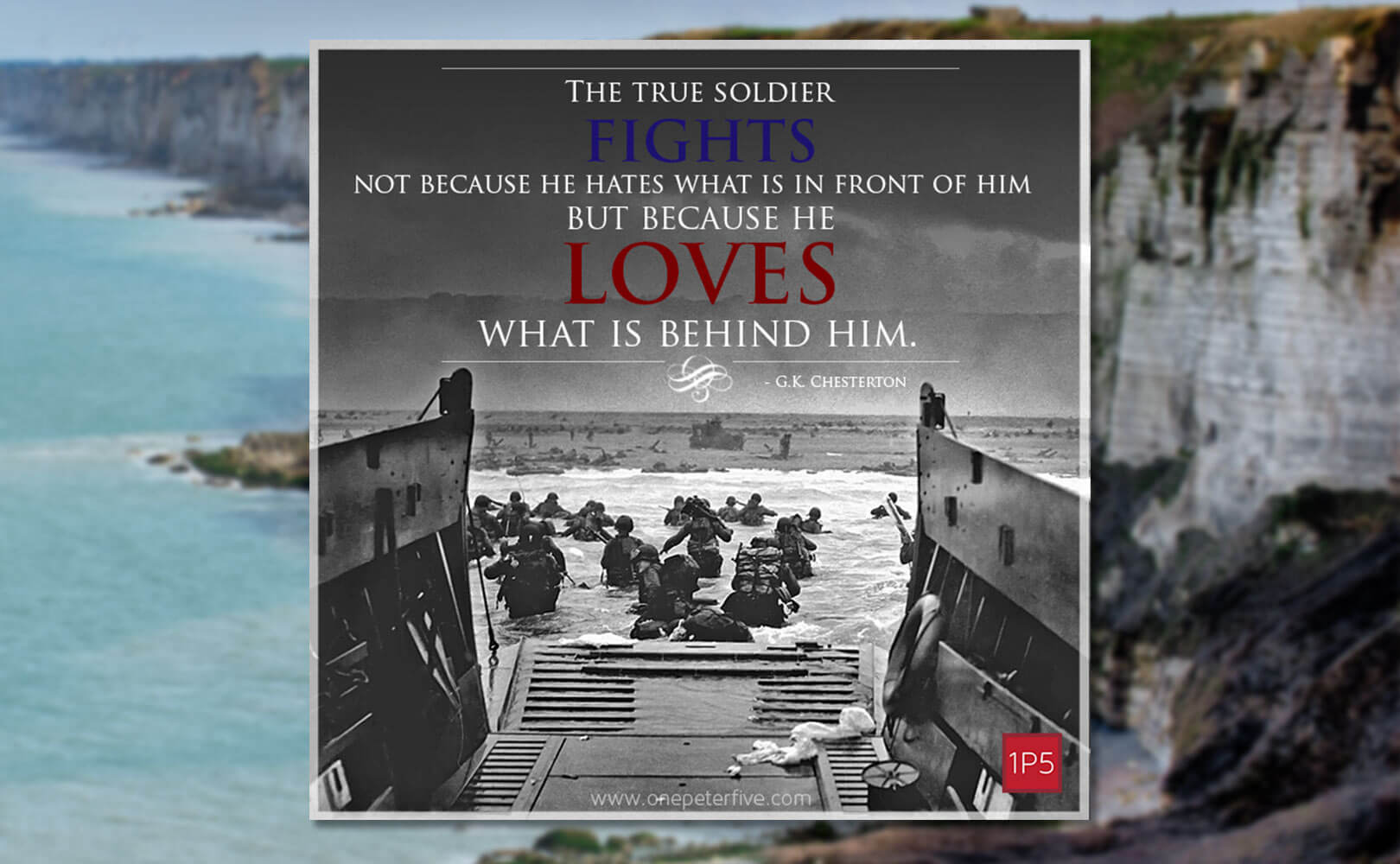They protected our freedoms; now it is our turn.
Yesterday, June 6, 2021, marked 77 years since the D-Day Invasion at Normandy. As memories of that fateful day dim, we must take steps to remember. We have a duty to honor the men who fought bravely, and we must learn from their resolve.
D-Day’s hard-fought success became a defining moment that turned World War II toward eventual Allied victory. General Dwight Eisenhower headed the military effort as the Supreme Commander of Allied Forces. Alongside British and Canadian counterparts, he spent a year planning the greatest amphibious invasion. They had one opportunity to get it right.
After a weather delay, Gen. Eisenhower gave the go-ahead for 6 June 1944. That morning, 156,000 Americans, British, and Canadians prepared for invasion and read Gen. Eisenhower’s Order of the Day.
“You are about to embark upon the Great Crusade . . . . The hopes and prayers of liberty-loving people everywhere march with you . . . . Your task will not be an easy one. Your enemy is well-trained, well-equipped, and battle-hardened. He will fight savagely . . . [but] I have full confidence in your courage and devotion to duty and skill in battle. We will accept nothing less than full Victory! . . . [L]et us all beseech the blessing of Almighty God upon this great and noble undertaking.”
Were the soldiers afraid? How could they not have been? But, they marched past their fears and took one step and then another toward the enemy. Demonstrating courage and fortitude, they focused on mission and pushed forward until they achieved victory. We can learn much from them.
Our Nation once again faces challenges. We see a bombardment against America’s values and our Constitutionally protected freedoms and liberties. We worry about America’s future and the impact to our children.
Before fear overwhelms, ponder what the young men of D-Day faced. A Smithsonian article provides grim details: “Soldiers charged forward in chest-deep waters;” carrying “90 pounds of ammunition and equipment.” Struggling ashore, “they faced withering machine gun, artillery and mortar fire.” In the invasion’s first minutes, some units had up to 90% wounded or killed.
At the age of 23, Arnold Raymond “Ray” Lambert participated in D-Day as a medic with the 16th Infantry Regiment. Years later, he returned to Normandy. In a book published for the 75th anniversary, he wrote, “Where tourists…see pleasant waves, I see the faces of drowning men…[and] hear the cries of men pierced by Nazi bullets.”
Ray Lambert and thousands of others each played an important role in D-Day’s victory. Their combined efforts created a mighty fighting force: 13 Allied nations; 156,000 servicemen; 11,000 aircraft; and 7,000 landing vessels. The battle also took a heavy toll. At the end of that long day, 4,415 Americans were killed while another 5,600 were either wounded or missing.
President Reagan said, “freedom is a fragile thing” and is “never more than one generation away from extinction.” He urged subsequent generations to fight and defend it. Those who fought in World War II, D-Day, and other wars defended America’s freedom. We must do the same. Like the D-Day soldiers, each of us has a role. And like them, marching forward together, we form a strong fortress.
How do we proceed? One could write extensively on how to defend our cherished Nation. I’m confident readers can think of suggestions as well. The important thing is we get started. I wrote an article for Memorial Day that provided practical ideas and will share three here.
First, educate children why America is “one Nation under God, indivisible, with liberty and justice for all.” Eager and interested, children are never too young to hear about our great republic. Demonstrate how our country works by the family volunteering at the local election level.
Second, visit a war memorial. Show your children, grandchildren, nieces, nephews, and friends the names of local heroes who died fighting for freedoms we enjoy today. Do you live in the Washington, DC area? Visit the World War II Memorial to honor the 16 million Americans who served and 400,000 who died. Read the inscriptions about how they went to war to “liberate, not to conquer, to restore freedom and to end tyranny.”
From Washington, DC, drive 200 miles to The National D-Day Memorial. Congress designated Bedford, VA as the site after the small town suffered the worst proportional losses on D-Day. Thirty-five Bedford soldiers participated in D-Day. Within hours, 19 Bedford soldiers lay dead, and four more died during the two-month long Normandy campaign.
Gen. Eisenhower’s Order of the Day amplified a third responsibility: prayer. After declaring, “we will accept nothing less than full victory,” he immediately acknowledged God as the One who bestows that victory. Clair Galdonik, a private with the 359th Infantry Regiment, said, “I spent much time in prayer” while waiting for D-Day to start. How encouraging that Gen. Eisenhower and the mighty Allied Force sought God’s blessing.
Does it seem trite or overly optimistic to focus on God and prayer? If it’s good enough for Gen. Eisenhower and Private Galdonik, then it’s good enough for us today. Let St. Augustine’s words drive us forward: “Pray as though everything depended on God,” but “work as though everything depended on you.”
On Sunday, let us honor the 156,000 men, some just beyond boyhood, who fought on D-Day and then participated in the Battle of Normandy. Private First Class Joe Lesniewski taught children about his experiences and humbly explained, “I’m just an ordinary guy” and “had a job to do.”
Fellow Americans, it is now our turn. Although we may be “ordinary” people, each of us still has a job to do. Inspired by the fortitude of D-Day heroes and seeking God’s blessings, we must march toward our duty to preserve America’s liberty and freedoms for the next generation.


